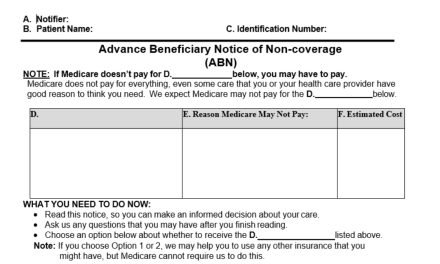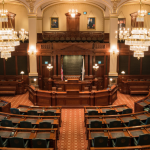
A Breath of Fresh Air

Editor’s Note: This legislation passed and was signed by the governor. It became law on January 1, 2012. This was a monumental achievement for the chiropractic profession in Illinois.
For years many chiropractic physicians in the state have been utilizing oxygen therapies within their offices. In fact, the FDA has approved hyperbaric oxygen therapy to treat more than a dozen health problems. Although this was previously believed to be within the chiropractic scope of practice by the Department of Professional Regulation and the Illinois Chiropractic Society, an FDA opinion was recently brought to light classifying “any inhaled oxygen” (atmospheric oxygen) as a prescription drug. This resulted in over 30 chiropractic physicians in Illinois to be brought before the disciplinary board last year for treatments that were previously believed to be within scope.
After months of work and deliberation involving the ICS, the Illinois Department of Financial and Professional Regulation, the Illinois State Medical Society and the ICS’ legislative sponsors, acceptable language was developed; and Senate Bill 1843 overwhelmingly passed both chambers.
This bill’s clarified scope of practice reads as follows:
“Chiropractic physician” means a person licensed to treat human ailments without the use of drugs and without operative surgery. Nothing in this Act shall be construed to prohibit a chiropractic physician from providing advice regarding the use of non-prescription products or from administering atmospheric oxygen. Nothing in this Act shall be construed to authorize a chiropractic physician to prescribe drugs.
As you can easily see, the core definition of chiropractic remains intact, a physician licensed to treat without drugs or operative surgery. But the bill clarifies that oxygen therapies, which have already been in use by DC’s in Illinois and many other states, are specifically allowed within their practice. This does not allow a chiropractic physician to prescribe a liquid oxygen tank for a patient to take home and self-administer, and it also contains specific negotiated language prohibiting any prescriptive drug authority. However, it does allow for the administration of atmospheric oxygen.
During these negotiations, concerns were also raised about the lack of any definition in state law when it came to the word “drugs.” Without clarification, this unnecessarily restricts chiropractors from recommending or dissuading the use of any non-prescription medication to their patients. This restriction makes DC’s one of the only health care providers unable to discuss over the counter medications, which is unusual considering our role as primary health care providers. Considering that a great number of our physicians have mandatory pharmacology education in their curriculum, the solution was easy: grant a specific allowance for what the FDA refers to as non-prescription products.
The 11th Hour
Sadly, in the 11th hour of the legislative session, a number of chiropractic groups and individuals from outside the state launched a misinformed campaign to prevent the passage of this important legislation. Citing inaccurate origins, goals, sponsors, and interpretations of the law, they managed to confuse some of our own doctors here in the state as to what Senate Bill 1843 actually accomplished.
The legislative process is a complex machine and legislation itself is written in a way that is clear for legislators, lawyers, and judges – but not necessarily the layman. This is why it is important for the ICS to have a constant Statehouse presence on our member’s behalf. I would encourage doctors to contact the ICS if you ever have questions regarding any of our Statehouse activities.
Conclusion
The ICS has spoken to a number of these national groups and attempted to clarify our intentions, and in most cases we were successful. As it stands, we hope to see our bill signed into law by the time this issue has hit your doorstep. In the meantime, I must remind you that any comments that you make regarding the use of or dissuading your patient from using over-the-counter medications has been deemed a violation of your scope of practice. The ICS will notify its members when the Governor signs our bill and the effective date of this anticipated scope clarification.



















